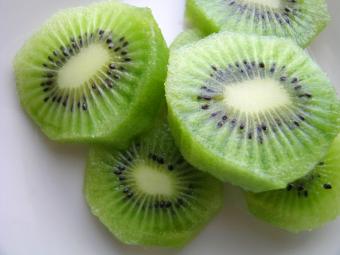
The Feingold diet food list is a list of foods approved by the Feingold program, meant to help reduce the amount of synthetic food additives today's children are consuming.
About the Feingold Program
The Feingold Program is so named for Dr. Benjamin Feingold, a leader in the fields of allergies and immunities. The program promotes food elimination, especially when it comes to synthetic additives, to help manage certain common childhood conditions, such as hyperactivity and ADHD, and to reduce the number of a whole host of other conditions, like asthma, ear infections, and more.
Feingold Diet Food List
The Feingold Program suggests elimination of foods which contain certain types of food additives.
- Synthetic colors
- Certain artificial sweeteners, especially aspartame
- Synthetic flavorings
- Synthetic preservatives, such as BHA, BHT, and TBHQ
Approved Foods
The Feingold diet food list includes whole foods in their most natural state.
- Broccoli
- Sprouts
- Zucchini
- Peas
- Sweet corn
- Potatoes
- Kiwi
- Lemons
- Beets
- Bananas
- Pears
- Bread without additives
- Cabbage
- Dairy products
- Fresh fish
- Cereals without additives
- Eggs
Those who sign up for the Feingold membership will receive a comprehensive plan. The program packet also includes a handbook, a fast food and restaurant guide, a complete food list and shopping guide, as well as a mail order guide.
Foods to Avoid
The following are the types of foods that often contain these potentially-harmful additives.
- Many Cereals - Popular commercial cereals marketed to children are loaded with artificial colors and sweeteners, not to mention sugar and calories.
- Soft Drinks - Soft drinks, whether regular or diet, are laden with chemicals and additives. The Feingold program notes that children were not consuming these types of beverages decades ago and instead consumed waters and fresh juices.
- Processed Foods - This refers to any number of common foods, from packaged foods to the meals you purchase through your local drive-thru.
- Vitamins - Many vitamins marketed toward children contain added colors, sweeteners, and flavorings.
Additionally, the program includes a whole host of other foods not allowed. These include typically healthy foods, like almonds, berries, tomatoes, grapes, and oranges, as well as certain medications.
Program Critics
Not everyone in the medical community supports the Feingold Program. Several critics believe it is both drastic and unrealistic for most families. The elimination of certain whole, natural foods causes many to raise questions as to the validity of Dr. Feingold's research. Furthermore, some medical experts negate even the basic premise of the program: that hyperactivity and other conditions are connected to nutrition at all. Others suggest that the elimination of so many foods could actually be harmful to a child's health.
Research in this program is ongoing. Independent studies have found conflicting evidence with regard to the effectiveness of the Feingold diet. However, the fact remains that many parents swear by its tenants, and even some critics do suggest that there may be a link between foods and certain medical conditions in children.
Before pursuing a new diet for your child, it is best to consult a medical professional. This is especially true if your child has a health condition for which he or she takes prescription medications or is under the supervisory care of a doctor. For an entire list of foods allowed and not allowed and more information about the program, visit the Feingold website.







